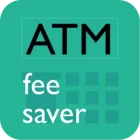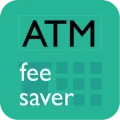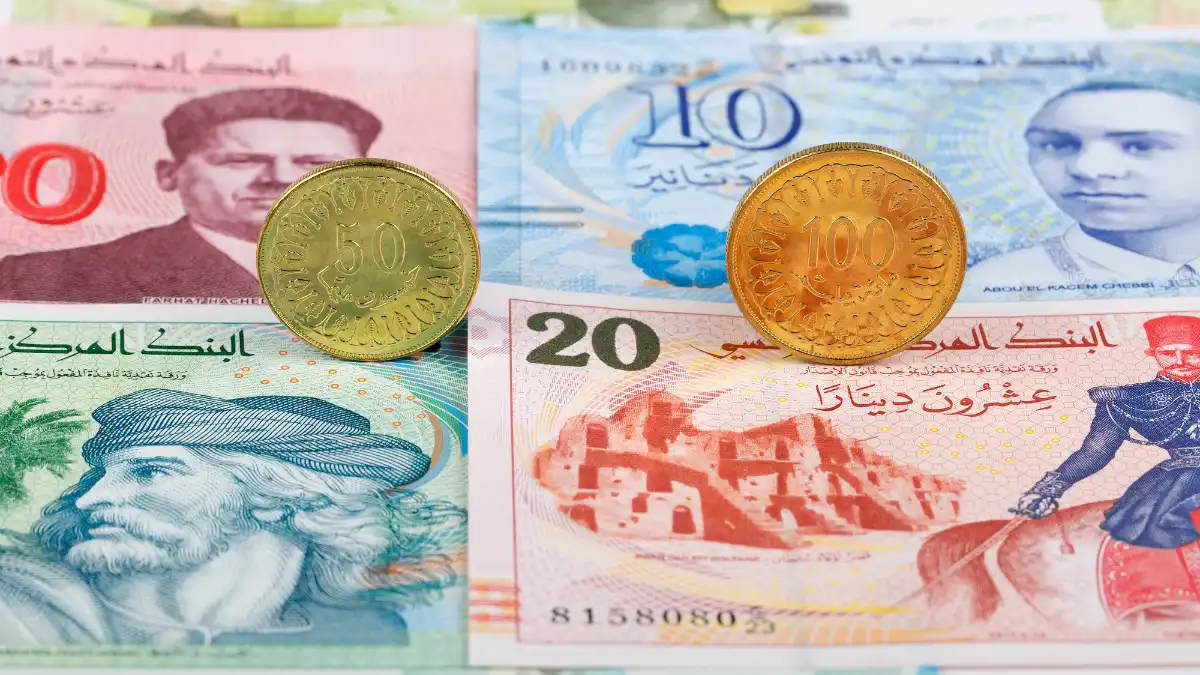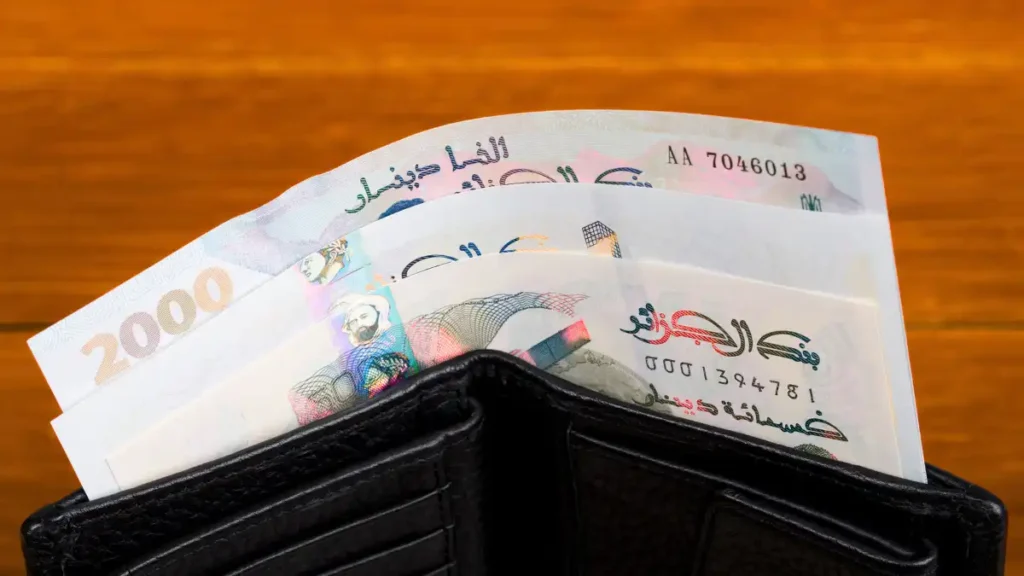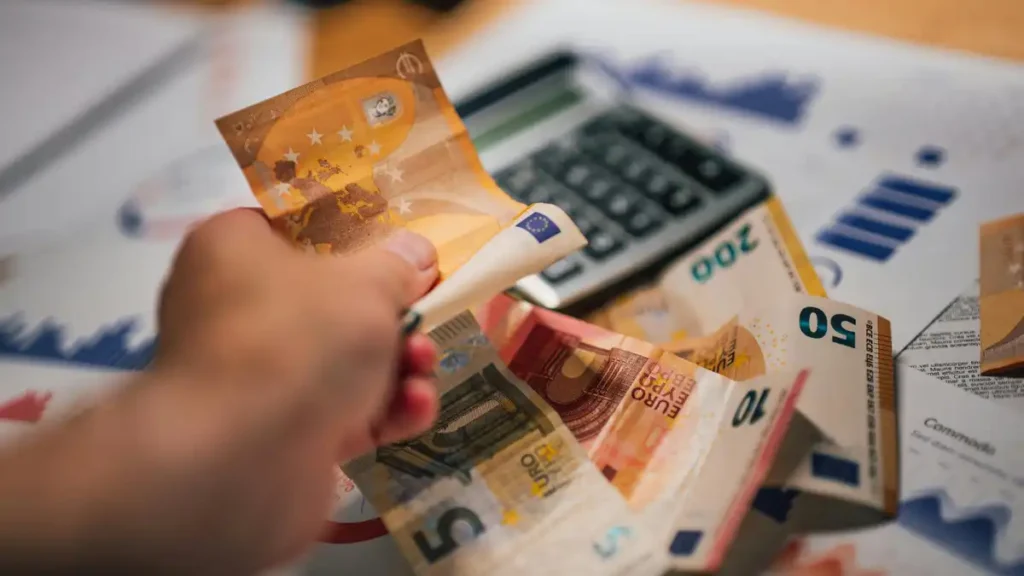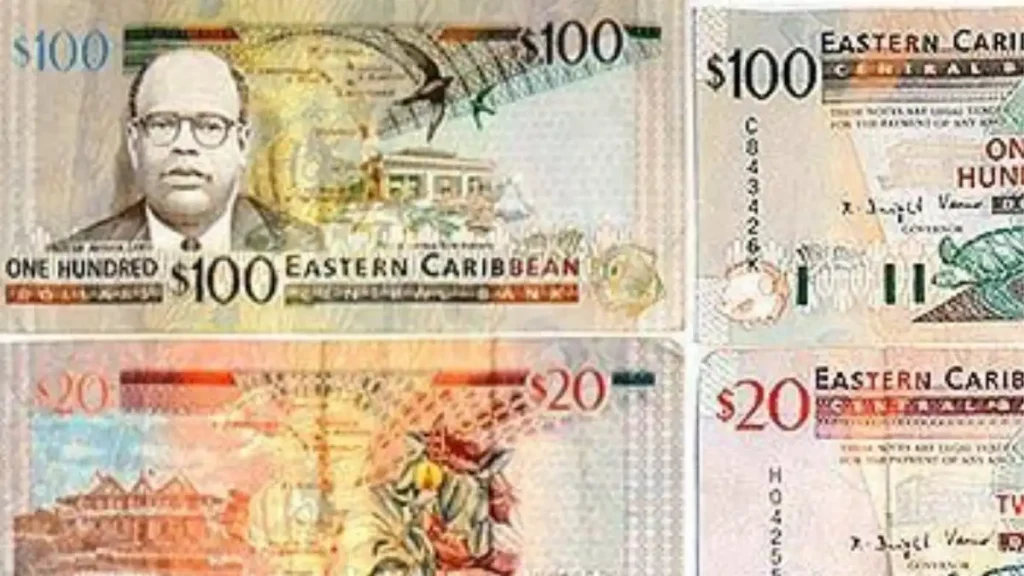Tunisia’s mix of Mediterranean beaches, ancient ruins, and desert landscapes makes it a diverse and exciting destination – but managing money in Tunisia and understanding how currency works is vital for a stress-free experience. Whether you’re bargaining in souks, visiting historical sites, or relaxing at coastal resorts, knowing how to pay is essential. This guide covers what currency to bring, the best ways to get money and currency in Tunisia (Tunisian Dinar – TND), tips for cash safety, and key dos and don’ts. With these insights, you’ll avoid unnecessary fees and enjoy Tunisia with ease.
How to pay in Tunisia – cash or card?
In Tunisia, cash is still the most common payment methods. You’ll find that most street vendors, small cafés, and corner shops expect payment in dinars. In hotels, supermarkets, and touristier restaurants, cards are increasingly accepted. The Tunisian dinar (TND) is the official currency.
You can use cash for:
- Public Transportation: Buses, louages (shared taxis), and trams generally require cash.
- Street Vendors and Markets: Souks and street stalls are cash-only.
- Small Businesses: Family-run cafés, shops, and snack bars often prefer cash.
- Hostels and Guesthouses: Many budget accommodations operate on a cash-only basis.
- Tips and Gratuities: Cash tips are expected for guides, drivers, and hotel staff.
- Rural Areas: Card facilities are rare outside major tourist areas.
You can use card for:
- Hotels: Mid- to high-end hotels in tourist zones and cities usually accept cards.
- Restaurants: Some urban restaurants and resort dining spots take cards.
- Retail Stores: Larger supermarkets and shops in cities may accept cards.
- Car Rentals and Tours: Well-established operators typically accept cards.
- Online Bookings: Flights, hotels, and organized tours can often be paid for online by card.
What’s the best currency to take to Tunisia?
The Tunisian Dinar (TND) is the official and only accepted currency in Tunisia. It’s a closed currency, meaning you cannot bring it into or take it out of the country legally, so you’ll need to obtain it after arrival.
Foreign currencies like Euros, USD, and GBP are not used for direct payments.
Where to get currency in Tunisia?
There are 3 main ways to get cash in Tunisia. They are:
- ATMs, or
- Currency exchange, or
- Money transfer & local pick-up
Types of cards to swipe in Tunisia
Establishments with POS machines readily accept Visa and Mastercards for swiping. You might also find some places that accept Amex and other cards, albeit less frequently.
Types of cards at ATMs in Tunisia
If you’re withdrawing money in Tunisia from an ATM, ATMs commonly accept Visa and Mastercards. Some of them also accept Plus and Cirrus cards. Only some accept CUP, JCB, Maestro cards. Others like American Express, Diners, Discover and Rupay cards are generally not accepted.
Should I exchange money before travelling to Tunisia?
It’s not possible to obtain Tunisian Dinar (TND) outside Tunisia, as it’s a closed currency, so bring foreign cash – preferably EUR, USD, or GBP – for exchange upon arrival.
ATMs are widely available in Tunis, Sousse, and other cities, and accept Visa and Mastercard. Be sure to check withdrawal limits and your bank’s foreign transaction fees.
Exchange your foreign currency at banks or authorized bureaux de change for better rates. Airport exchange counters are convenient but may offer less favorable rates – only use them for small amounts if necessary.
Where to withdraw money in Tunisia
You can withdraw money in Tunisia at leading bank ATMs in the country. The best ATMs for foreigners to use in Tunisia are those owned by popular banks such as:
- Al Baraka,
- TSB,
- QNB,
- Banque de Tunisie, and
- BNA.
There are other banks with ATMs that also accept international debit and credit cards.
There are no known Global ATM Alliance member banks or All Points network banks in Tunisia.
For a detailed guide, read Cash and ATMs in Tunisia.
Where to exchange currency in Tunisia
Common places to exchange currency in Tunisia are licenced exchange bureaus or banks.
Currency exchange offices: Known as “bureaux de change”, they are available at airports, hotels, and city centers like Avenue Habib Bourguiba in Tunis. These operate with fixed government-regulated rates and no commission.
Banks: All major banks such as Banque de Tunisie, Banque Internationale Arabe de Tunisie (BIAT), and Amen Bank offer exchange services. Hours are typically Monday to Friday, 8:00 AM to 4:00 PM.
Hotels: Many mid- and high-end hotels offer currency exchange at similar official rates.
Pro Tip: Bring EUR, USD, or GBP in clean bills. Keep your exchange receipts – they’re required if you want to convert leftover Dinars back before leaving the country.
You can find good currency exchanges in Tunisia using the ATM Fee Saver app – it will guide you to the nearest currency exchange on the map. The app helps you with forex places in 160+ countries, including Tunisia. Download now from the App Store or Play Store.
Avoid Airport Exchanges and no-fee exchange offices: They have the highest fees and poorest exchange rates. Wait to get to the city to exchange cash.
Is carrying cash in Tunisia safe?
Carrying cash in Tunisia is common and generally safe, especially in tourist areas. However, like in many destinations, petty theft can occur in crowded places such as souks, public transport, or medinas – so it’s important to stay alert.
To carry cash safely in Tunisia:
- Carry only what you need for the day and secure the rest in your hotel safe.
- Use a money belt or zipped bag for added security in busy areas.
- Avoid displaying cash in public, especially in markets and street cafés.
- Use ATMs located inside banks or hotels rather than stand-alone street machines.
- Keep small bills for taxis, tips, and market purchases – many places prefer or require cash.
- Stay vigilant in popular tourist zones like Tunis, Sousse, or Kairouan.
Is it better to use debit or credit cards or pay by cash in Tunisia
Use a card if it is fee-free i.e. your bank does not charge any fees to swipe the card, when the merchant / POS also does not impose any extra charge to use a card, you need to use the insurance of the card, don’t want to block cash of large purchases and card’s swipe fees are lower than withdrawal fees.
Pay by cash by withdrawing cash from ATM or exchanging currency where – fees on ATM withdrawals are lesser than fees on swiping cards, you don’t want to leave any digital footprint of your expenses, it is convenient and easier to conduct transactions.
